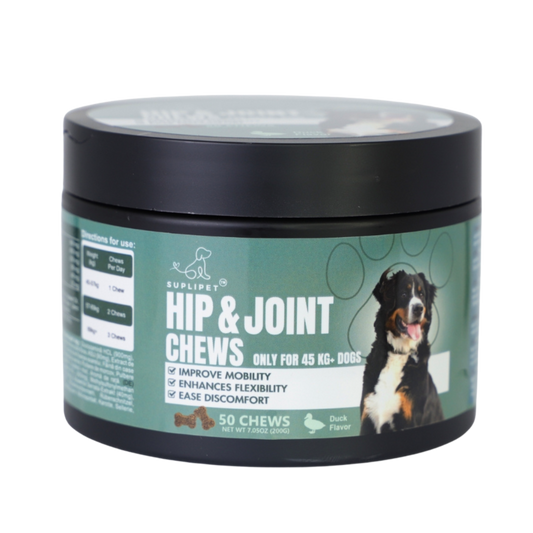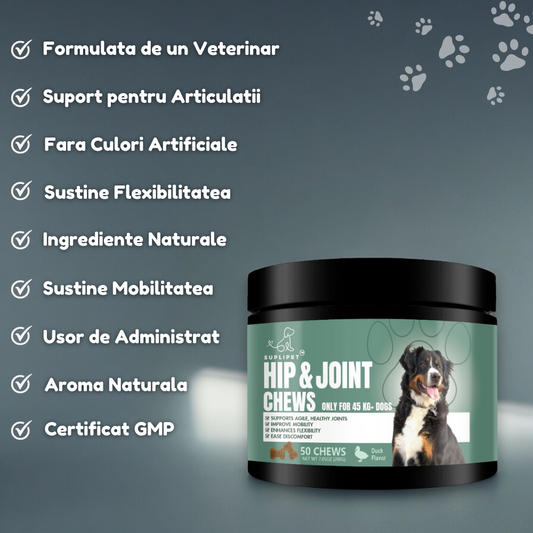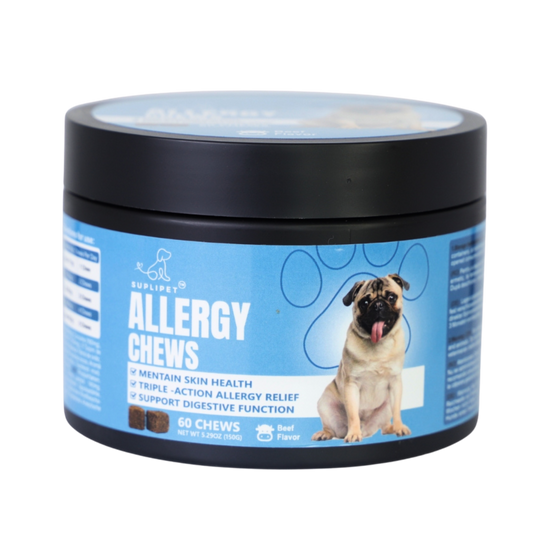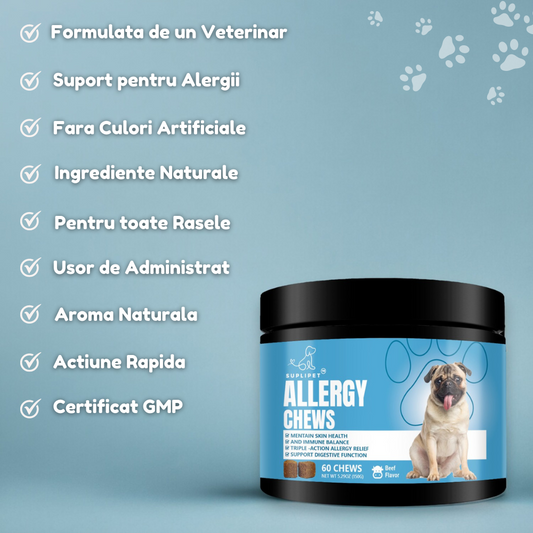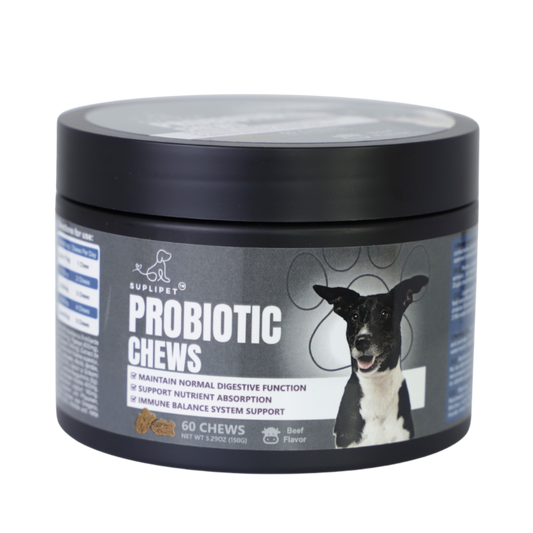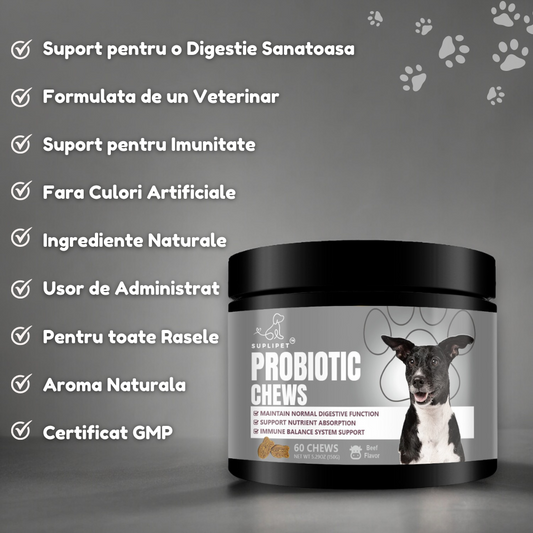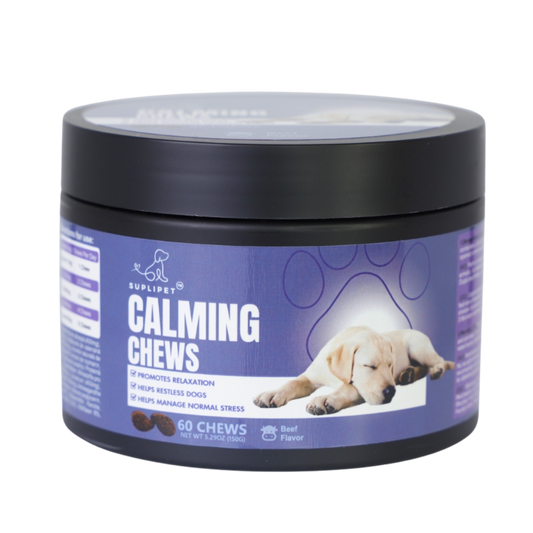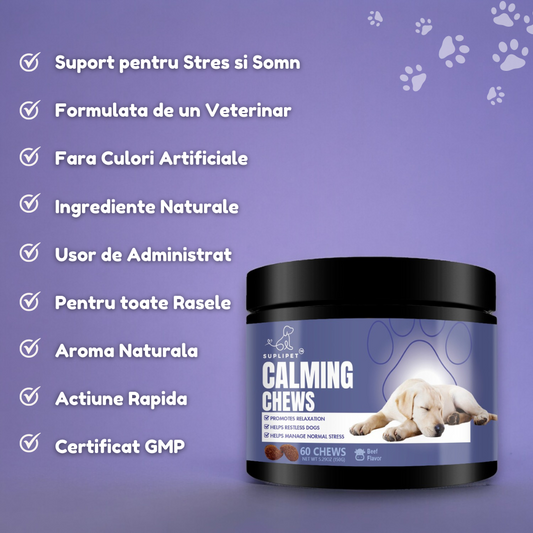Choosing the proper dog breed is an important decision that will impact your life for many years. The proper dog can provide enormous delight and company, whilst an ill-suited breed might present difficulties and frustration. This tutorial will explain the aspects to consider when selecting a dog breed and offer some supplements to keep your selected pet healthy and happy.

Assessing Your Lifestyle
Before selecting a dog breed, consider your lifestyle to ensure that the breed is compatible with your daily routine and living conditions. Here are some important considerations to consider.
Activity Level
Consider how active you are. Some breeds require significant exercise and mental stimulation, but others are fine with short walks and indoor play. Border Collies, Australian Shepherds, and Huskies require plenty of physical and mental stimulation to remain happy and healthy. In contrast, breeds such as Bulldogs, Pugs, and Basset Hounds are more sedentary and live a more leisurely existence.
Living Space
Your living conditions are critical in picking the best dog breed for you. Large breeds such as Great Danes, Saint Bernards, and Mastiffs require plenty of area to walk around, so they are better suited to families with large yards. Smaller breeds, such as Chihuahuas, Dachshunds, and French Bulldogs, can thrive in apartments due to their small size and low exercise requirements.
Allergies
If you or a family member has allergies, try hypoallergenic breeds like Poodles, Bichon Frises, or Schnauzers, which are less prone to allergic reactions. These breeds have hair rather than fur, which minimizes the amount of dander they shed, making them an ideal choice for allergy sufferers.
Time Commitment.
Dogs require time to train, groom, and socialize. Some breeds, such as Shih Tzus, Poodles, and Afghan Hounds, require frequent grooming to keep their coats healthy and mat-free. Other breeds, such as Beagles, Boxers, and Whippets, have short coats that require less care, making them easier to keep.
Family dynamics
Consider the demands of your family. Golden Retrievers, Labradors, and Beagles are among the breeds that get along well with children and other pets. These breeds are noted for their gentle and patient personalities. Other breeds, however, may be better suited to single-person households or families with older children because of their temperament and energy levels. For example, breeds such as Shiba Inus and Chihuahuas might be more independent and assertive, necessitating experienced owners who can handle their strong personalities.

Understanding the Breed Traits
Each breed has its own set of traits, such as temperament, energy level, grooming requirements, and potential health concerns. Understanding these characteristics can assist you in selecting a breed that best fits your lifestyle. Here's a look at some popular breeds and their traits:
Labrador Retriever
Labs, known for their affable and extroverted personalities, make excellent family companions. They are extremely trainable, lively, and require frequent exercise. Labradors are also recognized for their love of water and retrieving games, making them ideal companions for busy persons and families.
German Shepherd
German Shepherds are intelligent and loyal dogs that thrive in a variety of professions, including service, police, and search-and-rescue. They require a lot of mental and physical stimulus to avoid boredom and destructive conduct. German Shepherds are protective and make wonderful watchdogs, but they also require continuous training and socializing to stay well-behaved.
Bulldogs are noted for their calm and amiable nature. They are low-energy dogs who prefer lying around but may have health difficulties due to their brachycephalic (short-nosed) anatomy. Bulldogs are ideal for people or families looking for a low-maintenance companion, but their tendency to have respiratory and joint problems requires close monitoring of their health.
Poodles are exceptionally intelligent and hypoallergenic, making them suitable for allergy patients. They come in three sizes (normal, miniature, and toy) and require frequent brushing to keep their curly coats. Poodles are noted for their adaptability, as they thrive in a variety of activities including obedience, agility, and water retrieval.
Beagle
Beagles are friendly, curious, and excellent companions for families. They have a keen sense of smell and enjoy exploring, therefore safe fencing is required to keep them from wandering out. Beagles are known for their noisy disposition, which often involves wailing or barking to communicate, which potential owners should consider.
Chihuahua
Chihuahuas are little, but plenty of personality. They are appropriate for apartment living and are good friends, but they have a tendency to bark and be assertive. Chihuahuas require early socialization and constant training to handle their strong personalities and remain well-behaved.
Golden Retriever
Golden Retrievers are gentle and kind, making them wonderful family pets. They are easily trained, enjoy playing, and require regular exercise and grooming to maintain their coats in good condition. Golden Retrievers are recognized for their friendly personalities and are frequently utilized as therapy dogs due to their calm and calming presence.
Choosing A Healthy Breed
When choosing a breed, it is critical to investigate any potential health risks linked with that breed. Certain breeds are predisposed to specific hereditary diseases, so it is critical to select a reputable breeder who checks for these conditions. Here are some common health concerns to consider:
Hip Dysplasia.
Hip dysplasia is a prevalent issue in larger breeds such as German Shepherds, Labradors, and Golden Retrievers. This problem develops when the hip joint does not fit together properly, resulting in arthritis and pain. To lessen the risk, ensure that the breeder has been checked for hip dysplasia and follows proper breeding techniques.
Brachycephalic syndrome.
The brachycephalic condition affects breeds with short noses, including Bulldogs, Pugs, and Shih Tzus. Because of their tiny airways, these breeds are prone to respiratory problems and must be closely monitored to avoid overheating and breathing difficulties. It is critical to be aware of potential health issues and prepared to manage them.
Heart Conditions
Certain breeds, such as Cavalier King Charles Spaniels, are predisposed to heart conditions such as mitral valve dysfunction. Regular veterinary check-ups are critical for early detection and management of heart issues, ensuring your dog's health and comfort.
Eye Problems.
Poodles, Shih Tzus, and Boston Terriers can develop eye diseases such as cataracts and progressive retinal atrophy. Regular eye exams are vital for detecting and treating these concerns early on, thereby preserving your dog's vision and quality of life.
Allergies and Skin Conditions
Bulldogs, Retrievers, and West Highland White Terriers are known to have allergies and skin problems. Proper grooming, a balanced diet, and frequent veterinarian care can all help to manage these conditions and maintain your dog's skin and coat in good condition.

Supplements for Healthy Dogs
Keeping your selected dog healthy entails more than just a good diet and exercise. Supplements can help people maintain their health. Here are some important supplements to consider:
Omega 3 Fatty Acids
Omega-3 fatty acids are necessary for skin and coat health, as well as decreasing inflammation and maintaining joint function. Fish oil supplements are a popular source of these healthy fatty acids. Regular supplementation can help control illnesses like as arthritis, improve skin and coat health, and boost cognitive function.
Probiotics
Probiotics improve intestinal health, boost the immune system, and ease digestion. They are especially beneficial for dogs with sensitive stomachs or who have been on antibiotics. Probiotics contribute to a healthy balance of gut flora, which benefits general digestive health and nutritional absorption.
Glucosamine and chondroitin.
These nutrients are essential for preserving joint health, especially in larger breeds prone to joint problems. They assist to reduce inflammation and support cartilage healing, which improves mobility and relieves the discomfort associated with arthritis and other joint issues.
Multivitamins
Multivitamins, which contain a wide range of vitamins and minerals, can help ensure your dog's nutrition is balanced, especially if they are on a homemade diet. Multivitamins promote general health, strengthen the immune system, and guarantee that your dog receives all of the nutrients it requires for optimal well-being.
Antioxidants
Antioxidants like vitamins C and E help the immune system and protect against cellular damage. They can promote overall health and lifespan by neutralizing free radicals and lowering oxidative stress, which can lead to aging and chronic diseases.
Joint Supplements
In addition to glucosamine and chondroitin, MSM (Methylsulfonylmethane) supplements can improve joint health and reduce inflammation in dogs, especially those who are prone to arthritis. These vitamins help boost mobility, alleviate pain, and promote overall joint health.
Digestive Enzymes
Digestive enzymes aid in breaking down food and enhance nutritional absorption. They can be good for dogs who have digestive disorders or are switching to a new diet. Enzyme supplements promote healthy digestion, relieve gastrointestinal discomfort, and improve nutritional absorption.
Herbal Supplements.
Certain herbal supplements, such as turmeric and milk thistle, may give extra health benefits. Turmeric contains anti-inflammatory qualities that can aid with arthritis and other inflammatory diseases. Milk thistle improves liver health and cleansing, supporting general well-being.
We recommend you use supplements from www.suplipet.shop
Conclusion
Choosing the perfect dog breed requires careful consideration of your lifestyle, living conditions, and the breed's unique characteristics and health requirements. Understanding these characteristics and providing adequate care, nourishment, and supplements will help your new furry buddy have a healthy and happy life.
Remember that choosing the right dog breed for your lifestyle will bring you joy, companionship, and several health benefits. Accept the joys and responsibilities of dog ownership, and you will be rewarded with undying loyalty, affection, and a lifetime of fond memories. Investing time in researching and selecting the perfect breed, as well as ensuring your dog's health with proper care, diet, and supplements, will pave the road for a rewarding and harmonious connection with your canine friend.
-
Regular price$19.00Regular price
$24.00Sale price$19.00 Save $5.00 (20%)Unit priceperHip & Joint Chews 45kg+ Dogs
-
Regular price$23.00Regular priceSale price$23.00 Save $-23.00 (%)Unit priceper
Allergy Chews Dogs
-
Regular price$18.00Regular price
$23.00Sale price$18.00 Save $5.00 (21%)Unit priceperProbiotic Chews Dogs
-
Regular price$17.00Regular price
$21.00Sale price$17.00 Save $4.00 (19%)Unit priceperCalming Chews Dogs


